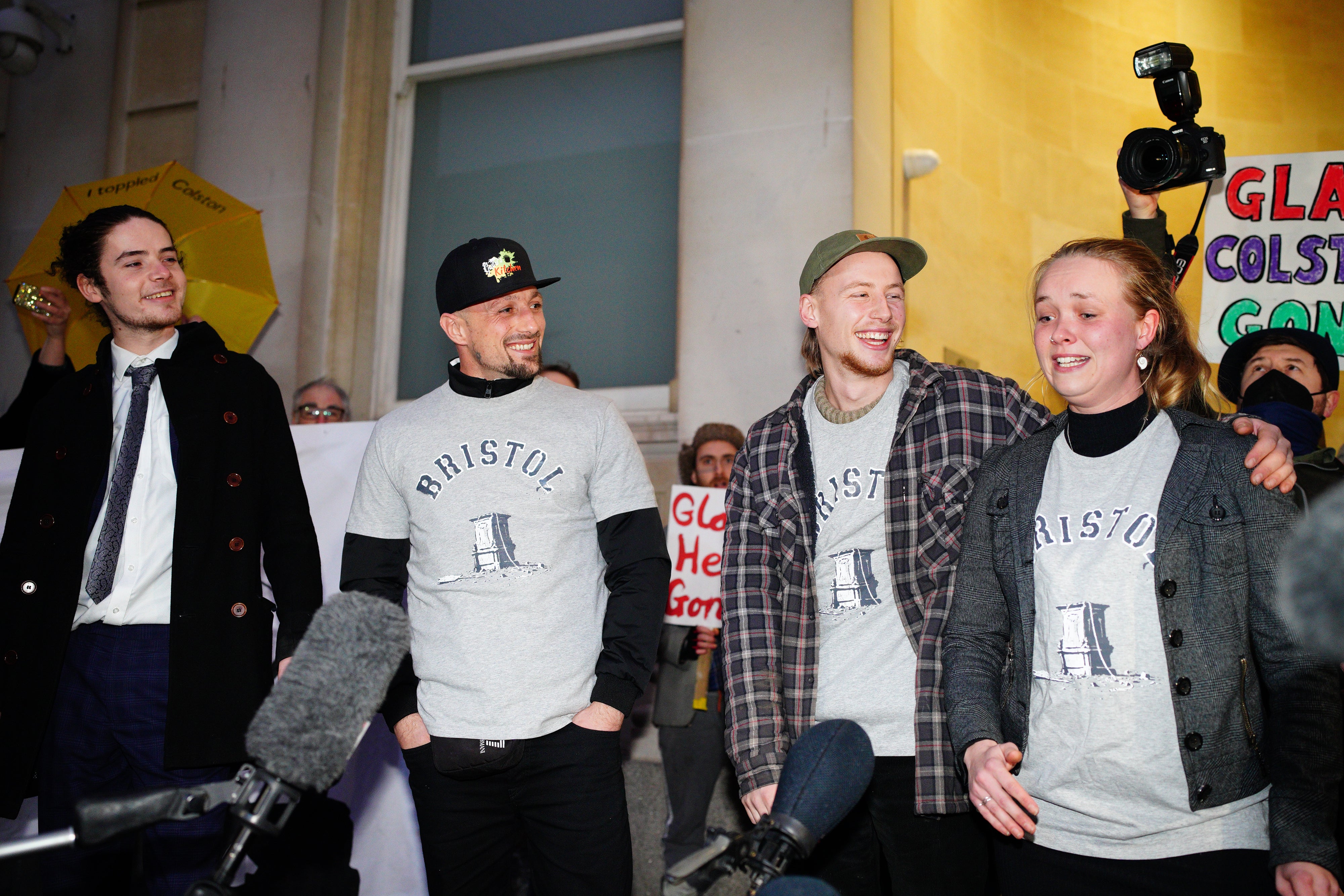Human rights not a defence for significant criminal damage, court rules in Bristol Colston statue case
Court of Appeal rules that the toppling of Edward Colston’s statue was ‘violent’ and caused significant damage
Your support helps us to tell the story
From reproductive rights to climate change to Big Tech, The Independent is on the ground when the story is developing. Whether it's investigating the financials of Elon Musk's pro-Trump PAC or producing our latest documentary, 'The A Word', which shines a light on the American women fighting for reproductive rights, we know how important it is to parse out the facts from the messaging.
At such a critical moment in US history, we need reporters on the ground. Your donation allows us to keep sending journalists to speak to both sides of the story.
The Independent is trusted by Americans across the entire political spectrum. And unlike many other quality news outlets, we choose not to lock Americans out of our reporting and analysis with paywalls. We believe quality journalism should be available to everyone, paid for by those who can afford it.
Your support makes all the difference.Human rights cannot be used as a defence for causing significant criminal damage, the Court of Appeal has ruled following the toppling of a statue of slave trader Edward Colston.
Four people who helped pull down the monument and roll it into Bristol harbour during a Black Lives Matter demonstration were acquitted of all charges in January, following a trial where it was argued that conviction would be a disproportionate interference with their right to protest.
Suella Braverman, then the attorney general, referred the case to the Court of Appeal for clarification on whether the defence was legally valid.
Judges, led by the Lord Chief Justice of England and Wales, ruled that it was not in the case of the “Colston Four” or other offences of criminal damage costing more than £5,000.
“The circumstances in which the statue was damaged did not involve peaceful protest,” said a judgment on Wednesday.
“The toppling of the statute was violent. Moreover, the damage to the statue was significant … the conduct in question fell outside the protection of the European Convention on Human Rights (ECHR).”
The Court of Appeal said the trial judge at Bristol Crown Court was wrong to allow jurors to consider the proportionality of the prosecution under human rights laws, because they “do not provide protection” to protests that are violent or not peaceful, or where “significant” damage is caused.
Judges said prosecution for cases involving minor or trivial damage to property might amount to a disproportionate interference with people’s rights, but added: “We cannot conceive that the convention could be used to protect from prosecution and conviction those who damage private property to any degree that is other than trivial.
“It is essential that prosecutorial discretion on whether to proceed to trial be exercised carefully.”
All four defendants – Jake Skuse, Rhian Graham, Milo Ponsford and Sage Willoughby – had admitted involvement in toppling the Colston statue but denied their actions were criminal, claiming the statue itself had been a hate crime against the people of Bristol.
The Court of Appeal ruled that debate about the monument should have been “resolved through appropriate legal channels, irrespective of evidence that those channels were thought to have been slow or inefficient, and not by what might be described as a form of criminal self-help”.

The Bristol protest, in June 2020, prompted wider national debate over statues to slave traders and figures who owed their fortune to exploitation of Britain’s former colonies.
The Colston statue was retrieved from the harbour and put on display in a museum, while a survey was launched on its future.
Raj Chada, a defence solicitor in the case, said he was “disappointed” by the judgment and maintained that the toppling was not violent.
“The statue is still on public display as a monument to the evils of the slave trade, not as an obscene glorification of a slave trader,” he added.
“It is a shame that this is the former attorney general’s focus rather than the multiple crises facing this country.”
Human rights organisation Liberty, which intervened in the case, welcomed the ruling that some protest-related criminal damage cases would be able to use human rights defences but argued that it put a new “threshold” on protections.
Lawyer Katy Watts said: “By placing weight on the value of an object in deciding if human rights can be taken into account, we feel that the court is shifting the balance too far away from our essential human rights.
“In recent years we have seen this government chip away at our protest rights. From restrictions on protest in the Policing Act to further attacks in the Public Order Bill, the government is making it much harder for people to challenge them and to access justice.”



